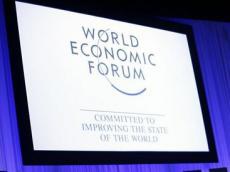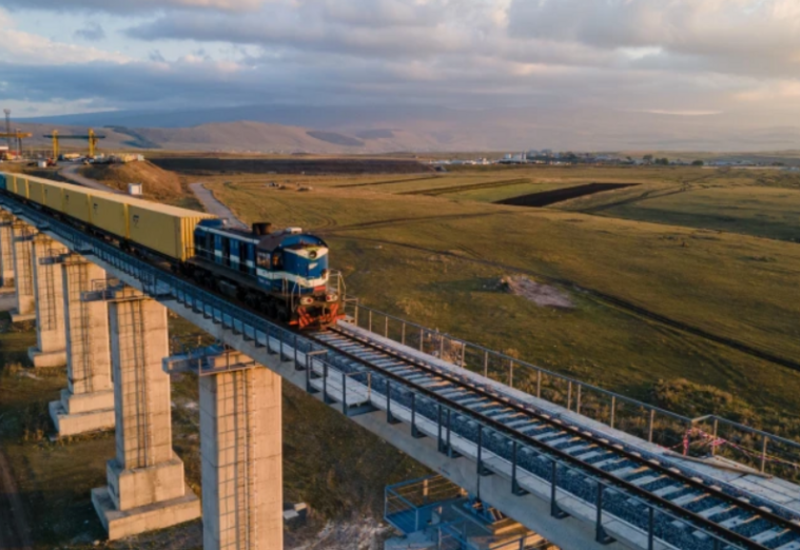|
|
TODAY.AZ / Analytics
Davos 2014: looking back on a forum that was meant to look ahead
27 January 2014 [16:10] - TODAY.AZ
 This was supposed to be the return to normal Davos. After all the years living in the shadow of the crisis, the World Economic Forum of 2014 was billed as the one that looked forward to the future not the past.
This was supposed to be the return to normal Davos. After all the years living in the shadow of the crisis, the World Economic Forum of 2014 was billed as the one that looked forward to the future not the past.The trouble is that the past doesn't seem to want to go away. There was the run on the Argentine peso that rekindled memories of the emerging market crises of the 1990s. There was the warning from Al Gore and Nick Stern, among many, that global warming was a more pressing issue now that it was before the financial crisis pushed climate change down the to-do lists of policymakers.
Above all, there was the frightening comparison made by Japan's prime minister, Shinzo Abe, that the current sour relations between his government and the communist regime in China had parallels with the Anglo-German tension in the run up to the outbreak of war in 1914.
A military clash between Asia's two biggest economies is still seen as inconceivable, but even if it continues to be jaw-jaw rather than war-war in the Eastern Pacific the parallel drawn by Abe is relevant for three reasons. The first is that changes in the global balance of power cause instability as countries on the rise flex their muscles and countries on the wane seek to maintain their influence. One such period was the quarter-century from 1890 onwards, which saw the rise of Germany and the US. Another has been the collapse of the old bipolar cold war world and the emergence of China as an economic superpower since 1989.
Second, these periods of change can go on for a long time. It took 30 years for stability to return after 1914, a period that included two world wars, the rise of totalitarianism and the great depression.
Finally, as Mark Carney noted in Davos last week, mismanagement of economic shocks can delay the impact of technological breakthroughs. There was plenty of evidence in Davos that innovation has not ceased while the crisis has been raging. Ideas abound, in areas such as the life sciences, with the potential to transform economies and dispel the fears of the former US treasury secretary, Larry Summers, that this is an age of secular stagnation. But they will only flourish in the right climate.
The final day of the World Economic Forum traditionally includes a roundtable on the state of the global economy, chaired by the Financial Times' chief economics commentator, Martin Wolf. This year's session was less good than usual, largely because the panel had too many people on it (the seven-strong cast list included the IMF chief, Christine Lagarde; the Bank of England governor, Mark Carney; the president of the European Central Bank, Mario Draghi; the Bank of Japan governor, Haruhiko Kuroda; and the German finance minister, Wolfgang Schäuble), resulting in none of them being able to say very much.
It was also clear, though, that Lagarde, Draghi et al are fumbling around in the dark. Wolf described the mood as cautiously optimistic, which is a bit like him (uncharacteristically) ending a piece with the phrase time will tell. Cautiously optimistic and time will tell are just polite ways of saying I haven't got a clue.
For what it's worth, here's how I see things. In the short run, the prospects for growth are better than people think. Sure, there's the potential for trouble in emerging markets but the response will be to keep economic policies looser for longer than it otherwise would have been. The Fed will slow down the gradual withdrawal of its policy stimulus, the Bank of Japan will step up its quantitative easing programme, and the ECB will ease policy to counter the threat of deflation.
Carney had a difficult week trying to explain what Threadneedle Street's forward guidance on interest rates now meant following the sharper than expected fall in unemployment. He insisted nothing had really changed: borrowing costs will remain low.
But as to the shape that forward guidance will take, that's a different matter. Will the Bank of England lower the threshold at which it starts discussing interest rate rises from an unemployment rate of 7% to a lower figure? Will it chose another economic variable – such as the growth in output or wages – to replace unemployment? Will it simply say the interest rates will stay low for a set period of time unless inflation picks up? Carney needs to come up with an answer in the next two weeks. At the moment, it is a case of time will tell.
But for businesses and households in advanced countries thinking about borrowing money, the question is whether a tightening of policy is imminent and there is no sign that it is. In the UK, this sort of environment could easily prompt a long-awaited pick-up of investment during 2014, leading to further upward revisions to growth forecasts.
The good news is unlikely to last. As the former head of the Financial Services Authority, Adair Turner, noted at a Davos breakfast last week, the remedy for the hangover caused by the last crisis is another stiff drink.
Central banks are cautiously optimistic that they will be able to remove the stimulus at the right time and that they have new macro-prudential tools – such as the Bank of England's curbs on mortgage lending – that will prevent dangerous asset bubbles from developing.
Summers said he doubted whether these macro-prudential measures would counter policy error and ignorance and he has a point. Central banks only spot bubbles when it is too late. So, while there is the risk of policy error, it is the risk that central banks will leave their foot on the accelerator for too long and that the vulnerability of an over-leveraged private sector will be exposed by a Black Swan event.
In the longer term, the survival of the current economic model should not be taken for granted. Turner noted there was currently no alternative to growth cycles based on ever-higher levels of debt and leverage. The environmentalists said there was no alternative to growth based on an increase in CO2 emissions that on present trends would raise global temperatures by 4 to 5C by the 21st century. Trade unions warned that it was unsustainable for a small minority at the top to benefit from growth while workers were left jobless or saw living standards stagnate.
These are all existential issues and there was not the remotest indication that Davos is yet to coming to grips with them. Last week the talk was of reshaping and rebooting the current model. It should have been about rethinking and recasting it.
/The Guardian/
URL: http://www.today.az/news/analytics/130336.html
 Print version
Print version
Views: 2909
Connect with us. Get latest news and updates.
See Also
- 04 February 2026 [20:54]
Epstein files and anatomy of elite impunity - 04 February 2026 [13:05]
Green energy and geopolitics: logic behind Azerbaijan-UAE cooperation - 04 February 2026 [08:30]
Is water new gold? Why investors are turning to water companies - 03 February 2026 [13:22]
What President Ilham Aliyev’s Peace Award says about changing global priorities - 03 February 2026 [08:30]
Layoffs without recession: What AI economy is really doing to jobs - 02 February 2026 [20:45]
US moving forces into Middle East - What comes next with Iran? - 02 February 2026 [08:30]
China’s industrial profits edge higher as trade war and structural strains bite - 01 February 2026 [21:40]
Grain, fuel and politics of peace: How trade redrawing Armenia–Azerbaijan relations - 01 February 2026 [17:51]
Zelensky announces new dates for Abu Dhabi talks on Ukraine crisis - 01 February 2026 [14:55]
From sanctions to strategy: Europe joins Washington in confronting Iran
Most Popular
 Zangezur corridor become part of TEN-T: European Union is joining fight for South Caucasus
Zangezur corridor become part of TEN-T: European Union is joining fight for South Caucasus
 Norwegian parliament to debate abolishing monarchy over 'Epstein' crisis
Norwegian parliament to debate abolishing monarchy over 'Epstein' crisis
 bp commemorates Magsud Ibrahimbayov’s birth anniversary
bp commemorates Magsud Ibrahimbayov’s birth anniversary
 Rumors about the Catholicos’ arrest are circulating in Armenia once again, raising the question of their purpose
Rumors about the Catholicos’ arrest are circulating in Armenia once again, raising the question of their purpose
 Azerbaijan, Armenia and Masdar
Azerbaijan, Armenia and Masdar
 Iran charges state TV staff after mockery of protest victims sparks outrage
Iran charges state TV staff after mockery of protest victims sparks outrage
 Israeli tourism to Azerbaijan soars, prompting flight expansion
Israeli tourism to Azerbaijan soars, prompting flight expansion
